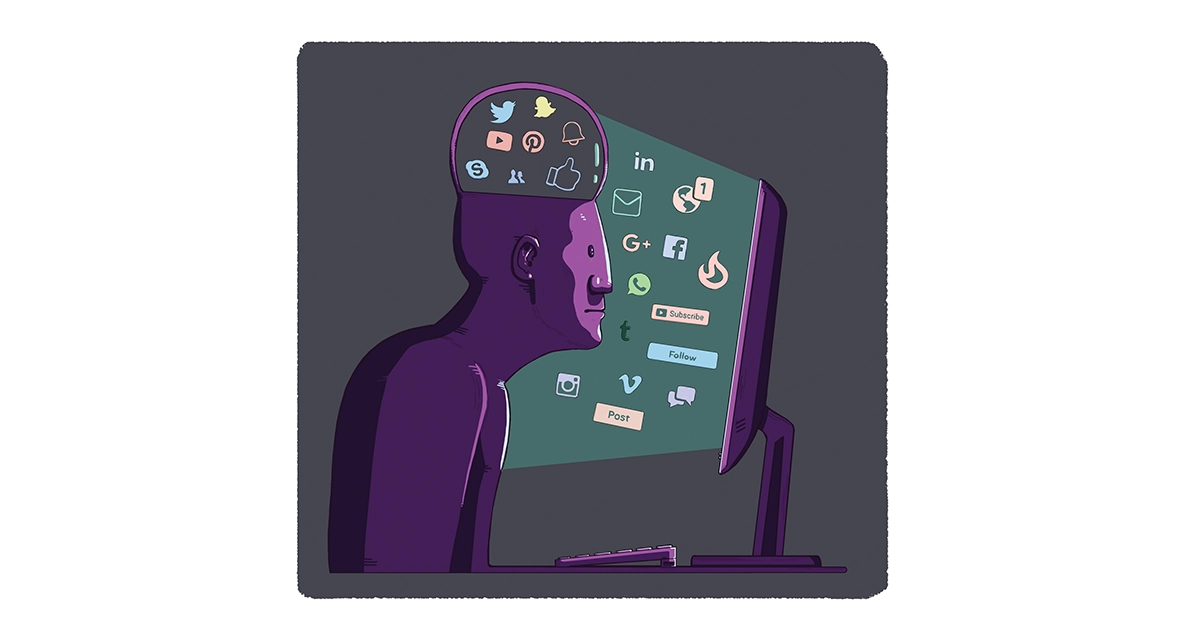After reading an article from Connected: The Surprising Powers of Our Social Networks and How They Shape Our Lives by Nicholas Christakis and James Fowler, I started really thinking about how social media affects our daily lives.
The article explains some of the ways social media can change a person’s behaviour and cites research stating that a person is 20 per cent more likely to begin smoking if their Facebook friends do, and 57 per cent more likely to gain weight if they have social media friends who are obese.
The study does not imply that a social media user will definitely become obese or a smoker, but i that their chances of doing so are increased because of what they see on their social media accounts.
With this study in mind, I began to think about the ways social media influences my behaviour, and how I’ve noticed it influencing the behaviour of my friends, coworkers, and classmates.
Social media trends such as the highly dangerous “boiling water challenge” seem to dictate what a large percentage of people do on social media, what they talk about (albeit for short periods of time), and the ways they present themselves.
Among other things, this could mean the way they dress or speak, or their choices about listening to particular genres of music because they have been deemed “popular.”
It’s not just trends that dictate the actions and behaviours of people, though. There are additional factors such as “likes,” the number of comments received, and follower counts.
Other studies I’ve read (for example, “Generation Validation: The Role of Social Comparison in Use of Instagram Among Emerging Adults” by Stapleton et al.) have found that people see more worth in others and themselves when the aforementionedfactors are higher and more positive.
This fact alone is disconcerting, but taking into consideration the fact that these views and behaviours are affecting lives outside our online existence (going back to the boiling water challenge, an eight-year-old girl recently died from consuming boiling water through a straw), it leads me to believe that we’re giving social media an immense amount of power in dictating our behaviours.
We tend to put a great focus on gaining social media popularity because of the worth assigned to it, which influences our behaviours further.
We might increase the frequency with which we document our lives, post more photos that have proven to be popular in the past (or popular on different users’ pages), or speak and act in ways to gain approval on social media platforms.
This shows the power social media can have in our lives, and the ways our social media patterns may be influencing our behaviours on an everyday basis, or more commonly, in times of crises.
Whenever something upsetting happens, whether it’s an attack, a natural disaster, or a political decision that is upsetting (this would be where I am most guilty), it becomes much more socially acceptable to respond on social media.
Changing the filter on a profile picture does not fix the world’s problems, yet it is a very popular move whenever disaster strikes.
When there’s a political issue, statuses and tweets are updated far more than usual, and they are met with a wave of likes and retweets, reassuring us that our posts were met with satisfaction.
When Donald Trump was elected, I was not happy about it. To show how unhappy I was, I made a long, rather pretentious Facebook post about how Trump was a tyrant and even Plato would say so, that Americans didn’t understand what they had done, etc.
I received more likes on that status than I typically would have, and I felt great about it.
I knew that many of my Facebook friends were posting about their unhappiness with the election, and that I would receive a larger amount of positive feedback by adding to the deluge of the long and angry posts about the US election, and I allowed this knowledge to influence my behaviour.
I rarely, if ever, post on Facebook, yet when I knew I would get a social media pat-on-the-back, I went straight to my keyboard to post a status update.
The behavioural influence social media has on us isn’t inherently bad, the problem is that we don’t always see or understand how social media use affects us.
In order to best represent ourselves, especially online, we must first understand the forces influencing us, and social media is a dominant force.
Graphics by Kia Valdez Bettcher.





0 Comments